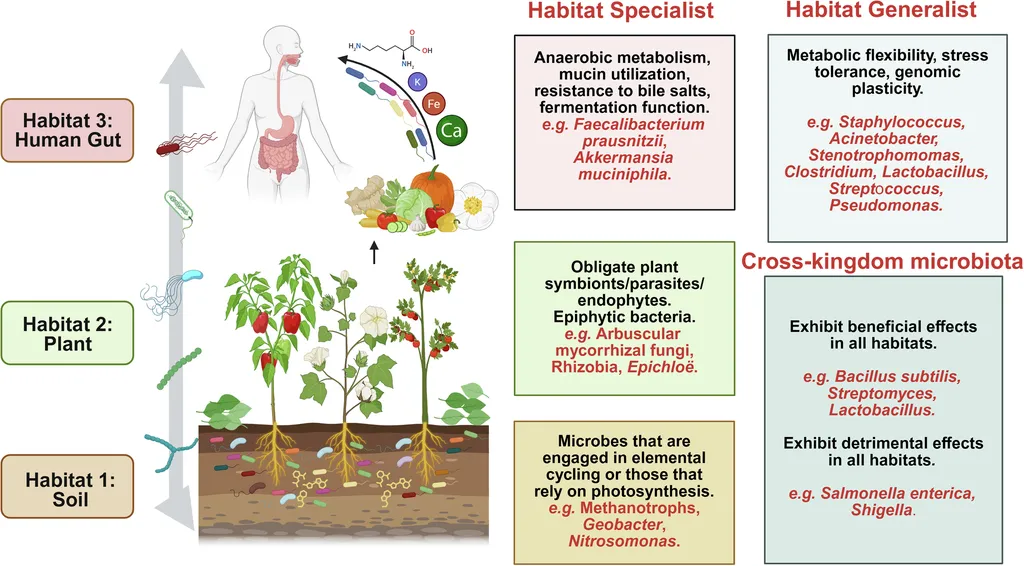In the quest for sustainable agriculture, scientists are increasingly turning to beneficial microbes as a means to enhance plant growth and protect crops from pathogens. A recent study published in the journal *Frontiers in Microbiology* (which translates to “Frontiers in Microbiology” in English) has shed light on the potential of a specific strain of Lactobacillus plantarum, dubbed LP0308, to colonize the rhizosphere—the region of soil surrounding plant roots—and promote plant growth. The research, led by Xiancui Zhang from the School of Life Sciences at Huzhou University in China, offers promising insights into the development of more effective bioinoculants for sustainable agriculture.
The study focused on the features and colonization strategies of LP0308 in soil-tomato systems. The researchers found that LP0308 could stably persist and proliferate in the rhizosphere soil over a long-term period (0–20 days), as confirmed by various analytical methods. This stable colonization led to significant changes in the microbial composition of the rhizosphere soil, increasing the abundance of beneficial Bacillus spp. while decreasing the presence of potential pathogenic microorganisms such as Ralstonia solanacearum and Fusarium oxysporum.
“Our findings suggest that LP0308 has the potential to be developed into a more effective bioinoculant for sustainable agriculture,” said Xiancui Zhang, the lead author of the study. “The successful colonization of LP0308 led to increased expression of genes related to biofilm formation, immune modulation, and antimicrobial activity, which are crucial for plant growth promotion and biocontrol activities.”
The study also revealed that the application of LP0308 significantly promoted various growth parameters in tomato plants, including bud length, plant height, primary root length, root fresh weight, and whole-seedling fresh weight. Additionally, the use of LP0308 markedly improved soil nutrient availability and stimulated key enzymatic activities, further supporting its potential as a plant growth-promoting rhizobacteria (PGPR).
The commercial implications of this research are substantial. As the agricultural industry seeks to reduce its reliance on chemical fertilizers and pesticides, the development of effective bioinoculants like LP0308 could provide a sustainable and eco-friendly solution. These bioinoculants can enhance crop yields, improve soil health, and reduce the environmental impact of agricultural practices.
The study’s findings open up new avenues for research and development in the field of agritech. Future studies could explore the application of LP0308 in other crop systems and investigate its interactions with different soil types and microbial communities. Additionally, the identification of specific genes and mechanisms involved in the colonization and plant growth promotion by LP0308 could pave the way for the development of more targeted and effective bioinoculants.
In conclusion, the research led by Xiancui Zhang and published in *Frontiers in Microbiology* highlights the potential of Lactobacillus plantarum strain LP0308 as a promising bioinoculant for sustainable agriculture. The study’s findings not only contribute to our understanding of microbial colonization and plant growth promotion but also offer valuable insights into the development of more effective and eco-friendly agricultural practices. As the agricultural industry continues to evolve, the integration of beneficial microbes like LP0308 could play a crucial role in shaping the future of sustainable farming.

